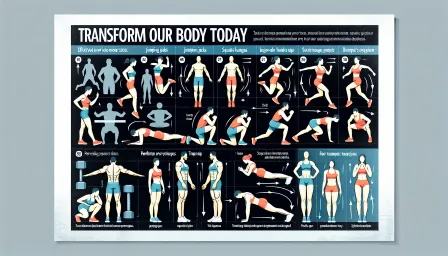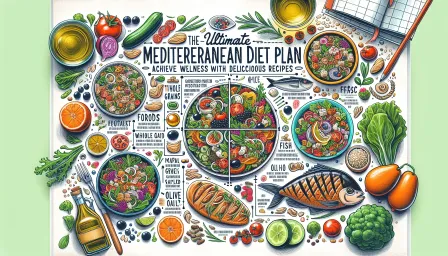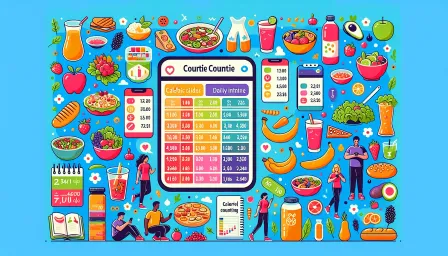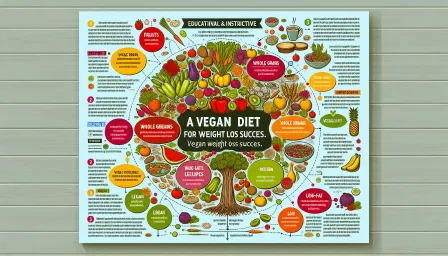Sugar Reduction for Beginners: Your Ultimate Starter Guide
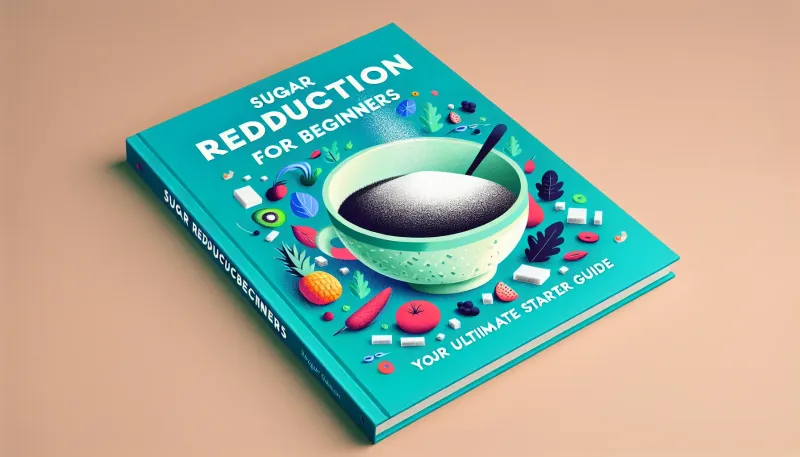
Discover expert tips and strategies for sugar reduction for beginners. Learn how to lower your sugar intake with practical, easy-to-follow advice.
Introduction
Welcome to your ultimate guide on sugar reduction for beginners. In today's health-conscious world, reducing sugar intake is a crucial step toward better health. Whether you're looking to lose weight, boost energy, or reduce the risk of chronic diseases, cutting down on sugar can be immensely beneficial. This article aims to provide you with practical, well-researched tips to start your sugar reduction journey.
Why is Reducing Sugar Important?
To understand the significance of reducing sugar, it's essential to know why excessive sugar intake is harmful. Consuming too much sugar can lead to various health issues, including obesity, diabetes, heart disease, and dental problems. Additionally, high sugar consumption can result in energy crashes, mood swings, and a higher risk of developing metabolic syndrome.
How Much Sugar is Too Much?
The American Heart Association recommends that women limit their intake to 6 teaspoons (25 grams) of added sugar per day and men to 9 teaspoons (38 grams). Most people, however, exceed these limits without realizing it, primarily due to hidden sugars in foods and beverages.
Steps for Reducing Sugar Intake
Read Nutrition Labels
One of the first steps toward reducing sugar is to become label-savvy. Check the nutrition labels for added sugars and aim to choose products with minimal or no added sugars. Ingredients are listed in descending order by weight, so if sugar appears early on the list, it's best to avoid that product.
Avoid Sugary Beverages
Sugary drinks like sodas, fruit juices, and energy drinks are among the biggest culprits of high sugar intake. Opt for water, unsweetened tea, or coffee instead. If you crave flavor, consider adding a slice of lemon or splash of natural fruit juice to your water.
Cook at Home
Cooking at home allows you to control what goes into your food. Avoid using processed sauces and opt for natural ingredients. Gradually reduce the amount of sugar in your recipes, and experiment with spices like cinnamon and nutmeg to add flavor without the extra sugar.
Choose Whole Foods
Whole foods such as fruits, vegetables, whole grains, and lean proteins are naturally low in sugar. Incorporating more whole foods into your diet can help displace sugary options and ensure you're getting essential nutrients without added sugars.
Snack Wisely
Prepare healthy snacks to avoid reaching for sugary treats. Nuts, seeds, yogurt (without added sugars), and fresh fruits are excellent low-sugar snack options that can keep you feeling full and satisfied throughout the day.
Be Mindful of Sugar Substitutes
While sugar substitutes might seem like a good alternative, it's essential to approach them with caution. Some substitutes can still affect insulin levels and may not necessarily contribute to better health. Opt for natural sweeteners like stevia or monk fruit in moderation.
Plan Your Meals
Planning your meals ahead of time can help you make more intentional food choices. When you have a clear plan, you're less likely to grab sugary snacks or fast food on the go. Create a balanced meal plan that includes protein, healthy fats, and fiber to keep you satiated.
Addressing Sugar Cravings
Cravings can be one of the biggest obstacles in reducing sugar intake. Here are some tips to manage them:
- Stay Hydrated: Sometimes thirst is mistaken for hunger or cravings. Drink plenty of water throughout the day.
- Include Protein and Fiber: Meals rich in protein and fiber can keep you fuller for longer and help reduce cravings for sugary snacks.
- Chew Sugar-Free Gum: Chewing gum can be a simple way to distract yourself from cravings.
- Practice Mindfulness: Mindful eating and recognizing emotional triggers can help you understand and manage your cravings better.
Long-Term Benefits of Sugar Reduction
Reducing sugar intake has numerous long-term benefits, including:
- Improved Weight Management: Cutting down on sugar can help you maintain a healthy weight.
- Better Mood and Energy Levels: Stabilizing blood sugar levels can lead to more consistent energy and a better mood.
- Enhanced Heart Health: Lower sugar intake can reduce the risk of heart disease and improve overall cardiovascular health.
- Reduced Risk of Chronic Diseases: Minimizing sugar consumption can lower the risk of developing type 2 diabetes, certain cancers, and other chronic illnesses.
- Healthier Skin: A diet low in sugar can contribute to clearer, more youthful skin.
Conclusion
Reducing sugar intake might seem challenging at first, but with the right strategies and a bit of dedication, it's entirely achievable. By being mindful of nutrition labels, making healthier beverage choices, cooking at home, and planning your meals, you can significantly cut down on sugar and enjoy the numerous health benefits that come with it.
Remember, every small step counts. Start your sugar reduction journey today and pave the way for a healthier, more vibrant future.




